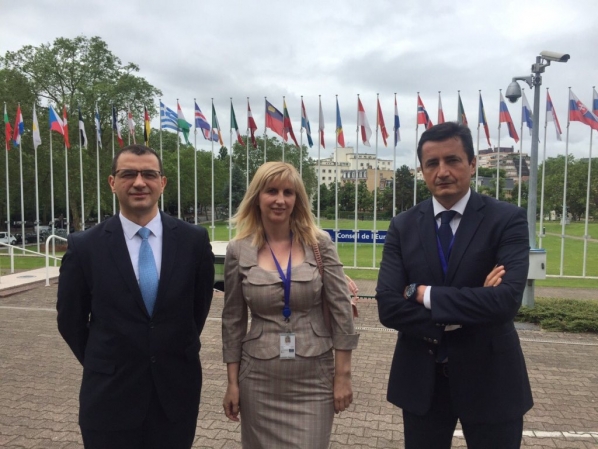The refugee and migrant crisis in the eastern Mediterranean must be fully accepted as a European and global problem, and not only as the problem of Greece, says the Resolution 2118 (2016) adopted by the PACE at today’s session. Within the discussion on this item of the agenda, it was agreed that the response to the refugee and migrant crisis should be based on respect for human rights, in accordance with fundamental common values of the Council of Europe, European Union and their member states, as well as on solidarity and equal sharing of responsibility.
In continuation of today’s session, when talking about the significance of fighting against the over-sexualisation of children, the parliamentarians of the Parliamentary Assembly pointed out serious consequences that this occurrence could have on the children’s self-esteem, their welfare, relations with other people, equal opportunities, and success at school. Because of that, PACE Resolution 2119 (2016) especially emphasises the need for implementation of urgent measures in order to prevent further spreading of this occurrence and its detrimental consequences, by using relevant legislative solutions, but also policies aimed at disseminating information and educating parents and education professionals on dangers that the children face in an over-sexualised environment.
Upon completing the discussion on position of women in the armed forces, the PACE adopted the Resolution 2120 (2016) which says that although Europe’s armies have gradually become more receptive to the recruitment of women in recent decades, women are still very much underrepresented, especially among the higher ranks. Women in the armed forces face many forms of discrimination, but also sexual harassment and violence. The Parliamentary Assembly stresses that it is therefore vital to change mentalities, step up efforts to prevent gender-based violence and establish mechanisms for dealing effectively with complaints. Considering the significant role that parliaments can play in the democratic scrutiny of the armed forces, the PACE calls on the national parliaments of member States to actively seek gender balance in the parliamentary bodies dealing with the armed forces; to actively follow the implementation by their country of Resolution 1325 of the United Nations Security Council, as well as to pay special attention to the issue of prevention of gender-based violence.
On day two of the Session, the parliamentarians were addressed by Minister for Foreign Affairs of Estonia Ms Marina Kaljurand, in her capacity as the Chairperson of the Committee of Ministers of the Council of Europe; she discussed the Committee’s activities during the past two months, as well as the priorities of the Estonian presidency relating to human rights and the rule of law on the Internet, gender equality, rights of the child, as well as cooperation of the Council of Europe with other international organisations.
Day three of the Session of the Parliamentary Assembly will be marked by addresses by the Prime Minister of Estonia and the Prime Minister of Greece, as well as by discussion on the topic of democratic institutions in Turkey.
Delegation of the Parliament of Montenegro taking part in PACE Summer Session consists of: Mr Predrag Sekulić, Head of the Delegation, and Mr Goran Tuponja and Ms Snežana Jonica, members of the Delegation.








